Poland
Factsheet
| ETHNIC MINORITIES: | |
|
German: Roma: |
0.4% 0.1% |
| RELIGIONS: | |
|
Roman Catholic: Eastern Orthodox: Protestant: Muslim: |
89.8% 1.3% 0.3% 0.1% |
| NET MIGRATION: | 55,644 |
| POP. GROWTH RATE: | 0.0% |
| GDP GROWTH: | +2.3% |
| GDP PER CAPITA: | 12,708 |
| UNEMPLOYMENT: | 10.3% |
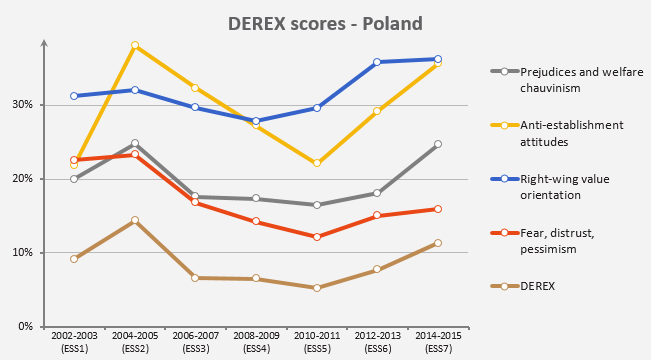
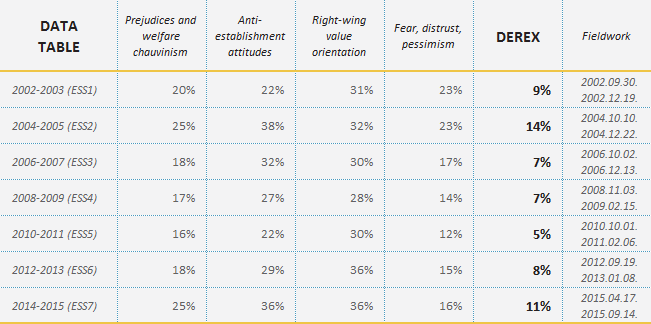
Congress of the New Right (Kongres Nowej Prawicy, KNP)
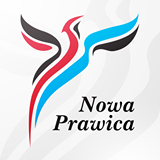
The Nowa Prawicy party was founded in 2011, after the merger of Janusz Korwin-Mikke’s former party, Freedom of Lawfulness (Wolność i Praworządność) with several members of Real Politics Union (Unia Polityki Realnej). The KNP identifies itself as a nationalist and libertarian party. According to his own speeches, former leader Korwin-Mikke is clearly Eurosceptic, anti-Semitic, anti-LGBT and sexist, however, he is not against the presence of national minorities or immigrants. The party also aims to abolish the EU, reduce the Polish state and democracy to a minimum, and create a state where its only purpose is to maintain law and order. At times, the party goes as far as to praise monarchy and the decline of democracy.
Despite the party having been founded as a way to protest, it is rising in popularity, especially with young male voters. The party was long ridiculed because of its leader who was ousted in 2015 as a result of many controversial speeches. This did not stop the Janusz Korwin-Mikke’s party at the time of the EP elections to receive 7.15% of the votes, resulting in 4 seats in the EP. Today, Michal Marusik is at the head of the party.
In July 2014, when Janusz Korwin-Mikke was still leading the KNP, an alliance with other far right-wing parties was considered, however, they were not able to come to an agreement. Indeed, the parties could not set their differences aside and both Marine Le Pen (FN) and Geert Wilders (PVV) considered the KNP’s views too radical and extreme as well as those of the Greek Golden Dawn and the Hungarian Jobbik. However, after the ousting of Janusz Korwin-Mikke and his replacement by Michal Marusik, the KNP was reconsidered as a suitable partnering party for the alliance and was accepted as a member of the new “Europe of Nations and Freedoms” (ENF) group.
Despite the party's previous success at the May 2014 European elections, the KNP only received approximately five thousand votes (0.03%) during the Polish parliamentary election of October 2015, 145 000 votes below their result from four years before (1.06%, October 2011). Although Marusik's leadership made the party suitable for the moderate European far-right, previous leader Korwin-Mikke's vision of a Chinese-type authoritarian government combined with extreme neo-libertarian economic policies seems to have been more appealing to the KNP's potential vote base. Korwin-Mikke’s personal figure proved to be more attractive than the KNP’s overall profile, and as a result his new party (KORWiN) collected somewhat less than 5% of the votes in 2015 (4.76%).
(Last update on 8. April, 2016)

KORWiN

The Coalition for the Renewal of the Republic - Freedom and Hope (Polish: Koalicja Odnowy Rzeczypospolitej Wolność i Nadzieja KORWiN) is a Polish right-wing political party established in 2015 by MEP Janusz Korwin-Mikke as a result of an internal conflict in his former party, Congress of the New Rights. Among the party's other members are Przemysław Wipler, who holds a seat in the Polish Seim and Robert Iwaszkiewicz, Member of the European Parliament.
The KORWiN party, more specifically its leader Janusz Korwin-Mikke, is often ridiculed for making radical statements. According to Janusz Korwin-Mikke, women in Poland should not have the right to vote. The MEP said the party would have a similar programme to the Congress of the New Right, only that it would be ''more extensive.” KORWiN is a radically libertarian party towards the economy, a Eurosceptic party, which believes in the restoration of Poland's monarchy, an end to universal suffrage and, according to Janusz Korwin-Mikke, “the European Commission building should be turned into a brothel. I've been there so I know it would be great as one.”
At the October 2015 general election the KORWiN came as the largest single party* which did not reach the 5% election threshold, attaining approximately 723,000 votes (4.76%). Previously, the KNP’s leader Korwin-Mikke was relatively successful both at the 2011 general election (KNP, 1.06%) and the 2014 European election (KNP, 7.15%). However, the recent popularity of his new party is somewhat unexpected and it is unclear whether it should be attributed to Korwin-Mikke’s demagogical declarations or rather the party being an evident choice for protest votes.
*Note that as a coalition the United Left (1,147,000 votes, 7.55%) was subject to a 10% threshold.
(Last update on 8. April, 2016)
Source:
- Political Capital

League of Polish Families (Liga Polskich Rodzin, LPR)
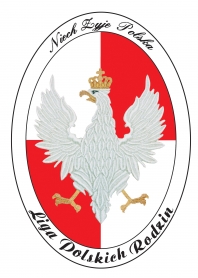
The League of Polish Families (Liga Polskich Rodzin, LPR) was formed shortly before the September 2001 parliamentary elections, in which it achieved an unexpected electoral breakthrough with 7.9 percent of the votes. The party claims to follow in the footsteps of pre-war Endecja, a nationalist movement of the early twentieth century. Its use of anti-Semitism in parliamentary debates caused numerous intellectuals, artists, and other public figures to sign open letters in protest. The LPR has positioned itself as the main party that opposes Polish membership in the EU and it increasingly capitalizes on the fears of the conservative-traditionalist sections of society in the face of European integration. The party initially drew its strength from the support it enjoyed from Radio Maria, a Catholic-nationalist radio station largely funded by Polish communities abroad.
Receiving 7.9% of the votes, LPR achieved its largest electoral success in 2001 with and anti-Semitic rhetoric denying the 1941 Jedwabne-progrom. At the 2004 EP election the party gained 15.4% of the vote. Thanks to these successes, the party joined the Jarosław Kaczyński government between 2006 and 2007. In 2007, the LPR did not reach the 5% parliamentary threshold, i.e. since 2007 it has had no delegates either in the Sejm or the European Parliament.
Sources:
- Cas Mudde (ed.): Racist Extremism in Central and Eastern Europe. Oxon: Routledge, 2005, p. 159-160.
- Political Capital
LPR on the Internet:

Self-Defense (Samoobrona)
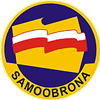
Self-Defence of the Republic of Poland (Polish: Samoobrona Rzeczpospolitej Polskiej, SRP) The Self-Defence formation split from the party in 2010, and subsequently in 2012 the two parties united as the new Self-Defence. Self-Defense (Samoobrona) is a populist party with a vaguely socialistic program, born out of a radical farmers’ organization led by Andrzej Lepper. It was formed in the early 1990s and gained real prominence after the 2001 Polish parliamentary elections. In the past, Lepper had frequently expressed far-right sympathies, for example referring to Joseph Goebbels and Jean-Marie Le Pen as his role models. In recent years, however, he has tried to distance himself from the extreme right. Unusual for a Polish right-wing populist, he criticizes the Church. Although Lepper has not ruled out Polish membership in the EU completely, he has been a loud critique of the EU as well. In contrast to the LPR, Self-Defense followers seem to be motivated not so much by xenophobia and symbolic politics, but by economic deprivation, especially in the rural areas of Poland.
Similar to LPR, the party had a breakthrough in the 2001 election coming in third with 10.2% of the votes cast, which it managed to boost to 11.41% at the 2005 general election. SPR was equally successful in the 2004 EP election, winning 10.78% of the votes. Together with LPR, the SPR was part of a coalition government led by Jarosław Kaczyński in 2006. Andrzej Lepper and his party quit the government in 2007 resulting in early elections and a collapse of support for the party, leaving it without a seat in Parliament ever since. Persistent sexual harassment charges levelled against the party leader discrediting SPR's promise of a national “moral renewal” have also contributed to the party's demise.
Samoobrona on the Internet:
Sources:
- Cas Mudde (ed.): Racist Extremism in Central and Eastern Europe. Oxon: Routledge, 2005, p. 160-161.
- Political Capital
Parliamentary elections - October 25, 2015
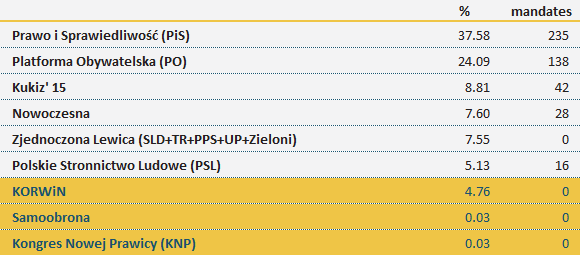

European elections - May 25, 2014
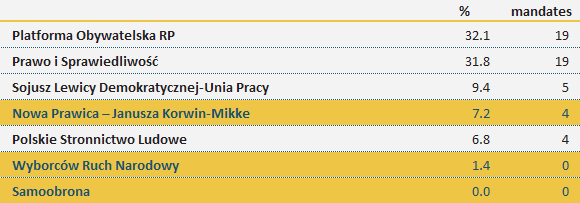

Parliamentary elections - October 9, 2011


European Parliament elections - June 7, 2009


Parliamentary elections - October 21, 2007


Parliamentary elections - September 25, 2005


European Parliament elections - June 13, 2004
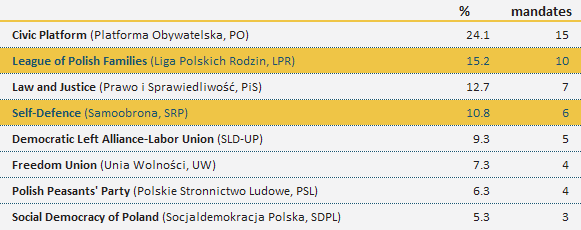

Parliamentary elections - September 23, 2001

Source: National Election Commission; EP2014; 2015
Our thematic websites
Political Capital's analyses and activities in English.
Research and advocacy programme focused on the role conspiracy theorising plays in shaping populist and radical politics.
Our project New electoral system in Hungary: watchdogging, advocacy and raising awareness focuses on the electoral reform in Hungary.
Our blog on political and societal extremism and conspiracy theories.
DEREX website is supported by










